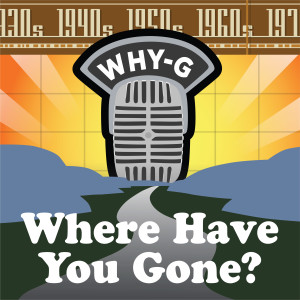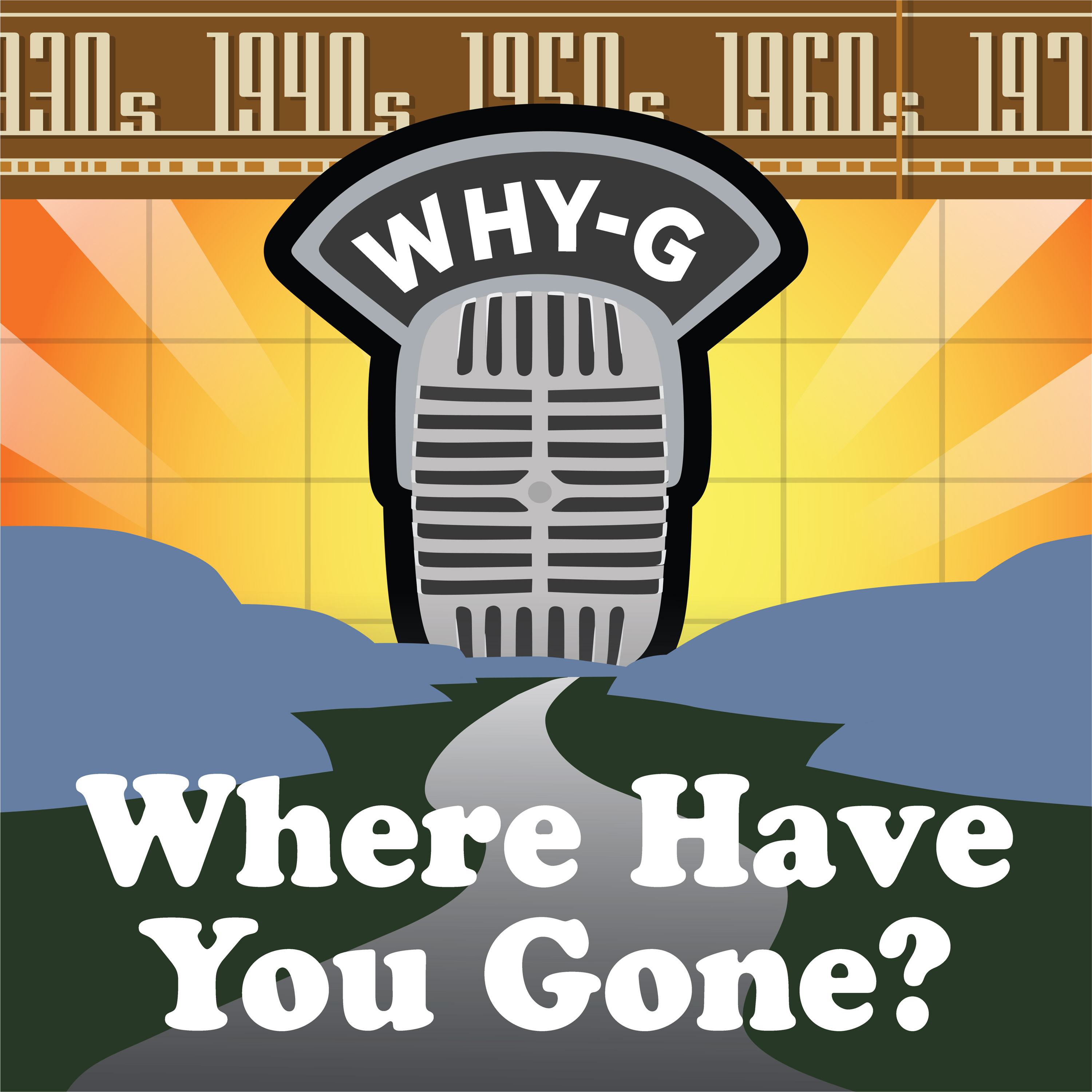Episodes

Thursday Apr 10, 2025
Where Have You Gone, George Plimpton, Vin Scully and the Ambassador Hotel?
Thursday Apr 10, 2025
Thursday Apr 10, 2025
In 1951, Bobby Thomson was 28 years old, the Ambassador Hotel was 30 years old, George Plimpton and Vin Scully were 24 years old. Plimpton was still years away from writing his classic books Out of My League and Paper Lion. Scully was the third man on the Brooklyn Dodgers broadcasting team that included Red Barber and Connie Desmond. He was years away from being the greatest play-by-play voice in baseball history. The Ambassador Hotel, featuring the Coconut Grove nightclub, was one of the world’s most notable lodgings, but it became infamous and, ultimately, extinct. And Joe DiMaggio called it quits on December 11, days after his 37th birthday.
Joltin’ Joe, Bobby, the Ambassador, George, and Vin…where have you gone?

Thursday Apr 03, 2025
Where Have You Gone, Welton Becket, Museum Row, Sport Magazine, and John Steinbeck?
Thursday Apr 03, 2025
Thursday Apr 03, 2025
So much of 1951 is gone, but not forgotten, including publications, ballparks, and other buildings. Gone or not, the work of many writers and architects in 1951 impacted the future.
Welton Becket, 49-year-old architect, Robert E. Petersen, 25-year-old publisher, and John Steinbeck, 49-year-old writer, were all doing work that would impact people for years to come.
The stories of Becket, Petersen, Steinbeck, and more are featured in this episode of Where Have You Gone?

Thursday Mar 27, 2025
Where Have You Gone: The Shot Heard ‘Round the World
Thursday Mar 27, 2025
Thursday Mar 27, 2025
This installment of Where Have You Gone looks at Bobby Thomson’s “Shot Heard ‘Round the World”. It put the New York Giants into the 1951 World Series against Joe DiMaggio, Mickey Mantle, and the New York Yankees.
Ever since October 3, 1951, the date and Bobby Thomson’s “Shot Heard ‘Round the World” have been linked. Since then, Thomson’s name has been chiseled into the story of baseball.
Thomson’s home run was the high mark of an exceptional career. Mickey Mantle had many highlights in one of baseball’s greatest careers. On October 4, 1951, at Yankee Stadium when the World Series began, Mantle (at bat) and Thomson (at third base) were only feet apart.
We’re decades away from 1951, but we’re striving to get closer to it, this season on Where Have You Gone? There are also stories about The Caine Mutiny, The Caine Mutiny Court-Martial, Herman Wouk, and Paul Gregory.

Thursday Mar 20, 2025
Where Have You Gone, Gordon McLendon, Lawrence & Lee, Rube Walker, and Broadway?
Thursday Mar 20, 2025
Thursday Mar 20, 2025
One of the champions of radio in 1951 was Gordon McLendon, creator of the Liberty Broadcasting System. Jerome Lawrence and Robert E. Lee were part of the creation of the Armed Forces Radio Service (AFRS).
Lawrence and Lee became one of America’s great writing duos. Their work stands the test of time. If Gordon McLendon’s work has not lasted in the same way, he remains an inspiration for anyone enthralled by the spoken word.
The work of Rube Walker on the baseball diamond is even less well known today, but also memorable.
Lawrence and Lee, McLendon, and Walker all succeeded on, or near, Broadway. There are many Broadways and we will consider some of them on this episode of Where Have You Gone?
There are also stories about Margo Jones, Nedrick Young, Fielder Cook, and the Lux Radio (and Video) Theater.

Thursday Mar 13, 2025
Where Have You Gone, Willie Mays and Meredith Willson?
Thursday Mar 13, 2025
Thursday Mar 13, 2025
The New York Giants had 17 wins and 19 losses when Willie Mays made his Major League Baseball debut on May 25, 1951. By the end of September, he was a fixture in the Giants’ lineup and helped put his team in a pennant race for the ages with the Brooklyn Dodgers. It was a high point in the history of Major League Baseball.
In 1951, the Lux Radio Theater celebrated its 17th anniversary and Meredith Willson turned 49 years old. NBC’s The Big Show of September 30, 1951, was beginning its second season on the air with a broadcast from London, England.
Radio was already beginning to lose its battle with television but competed for the hearts and minds of the audience with new programming ideas.

Thursday Mar 06, 2025
Where Have You Gone, Ford Frick, Michael Wilson, and Carl Reiner?
Thursday Mar 06, 2025
Thursday Mar 06, 2025
On September 20, 1951, Ford Frick was elected Commissioner of Baseball. The next day, A Place in the Sun opened at the Loew’s State in downtown Cleveland. Also on the 20th, screenwriter Michael Wilson “appeared before the House Committee on Un-American Activities as an ‘un-friendly’ witness” and took the fifth.
In the fall of 1951, Saturdays were special. Saturday was the night for Your Show of Shows. Carl Reiner was playing second banana to Sid Caesar. Reiner was 29 years old.
Frick, Wilson, and Reiner were vastly different people with vastly different careers, but each made an impact on many people in 1951 and beyond.

Thursday Feb 27, 2025
Where Have You Gone, Route 66 and the 1951 Voices of Major League Baseball?
Thursday Feb 27, 2025
Thursday Feb 27, 2025
We look at the 25th birthday of Route 66 and some of baseball’s all-time great broadcasters at the middle of the 20th century.
Route 66 turned 25 years old in 1951. In his book 1939 book The Grapes of Wrath, John Steinbeck called it “The Mother Road” and the moniker stuck. It ran through baseball cities large and small. It was immortalized in the song “Get Your Kicks on Route 66”.
Route 66 is a long road, and the 1951 National League season was one of those special longer seasons, longer by three games thanks to the playoff between the Dodgers and the Giants.
Some of the all-time greats were at the microphone broadcasting baseball games through car radios on roads like Route 66 in 1951. We can still listen to the voices and the heroics of bygone times today.
There are also stories about the other extended MLB seasons from 1946 to 1962, Sugar Ray Robinson, and Randy Turpin.

Thursday Feb 20, 2025
Where Have You Gone, Eric Simonson?
Thursday Feb 20, 2025
Thursday Feb 20, 2025
In his extraordinary career, Oscar-winning writer-director Eric Simonson has bridged a unique cross-section of American drama from Norman Corwin to Mark Harris. His documentary, A Note of Triumph: The Golden Age of Norman Corwin, won the 2006 Academy Award for Best Documentary, Short Subjects.

Thursday Feb 13, 2025
Where Have You Gone, Norman Corwin, Paul Douglas, and Jan Sterling?
Thursday Feb 13, 2025
Thursday Feb 13, 2025
We take yet another look at the legendary poet laureate of radio, Norman Corwin, and the husband-wife acting team of Paul Douglas and Jan Sterling.
On September 2, 1951 Norman Corwin “intermittently watched [the] Giants-Dodgers game” in New York City. He was in New York for a trade screening of The Blue Veil on September 5.
The film careers of Paul Douglas and Jan Sterling were taking off in 1951. That year, the couple, married in 1950, were both working on baseball films. Douglas was making Angels in the Outfield as manager Guffy McGovern of the struggling Pittsburgh Pirates. Sterling was making Rhubarb.
Stories include the 1951 Cleveland Indians, the 1951 American League pennant race, and Joseph L. Mankiewicz.

Thursday Feb 06, 2025
Thursday Feb 06, 2025
Another great playwright, Paddy Chayefsky, supporting players like actors Joe Mantell and Art Gilmore, and many of the Dodgers and Giants on October 3, 1951 are featured.
In 1951, Chayefsky turned 28 years old, and Mantell was 36 years old. By 1955, Mantell and Chayefsky were both Oscar nominees for the film Marty. Mantell was nominated for the Oscar for Best Supporting Actor and Chayefsky won the Oscar for Best Screenplay.
On August 14, 1951, the film A Place in the Sun premiered in Los Angeles. It’s one of the iconic films of the 1950s directed by George Stevens and starring Montgomery Clift and Elizabeth Taylor. In an uncredited role, Art Gilmore’s voice is heard as a radio announcer.
Gilmore was the namesake of the Art Gilmore Career Achievement Award from the Pacific Pioneer Broadcasters. Gilmore was one of the founders of the organization.
We look at Alfred Hitchcock's The Birds, the Society of American Magicians (SAM) and the International Brotherhood of Magicians (IBM), Ezzard Charles, Bill Veeck, and Eddie Gaedel.

